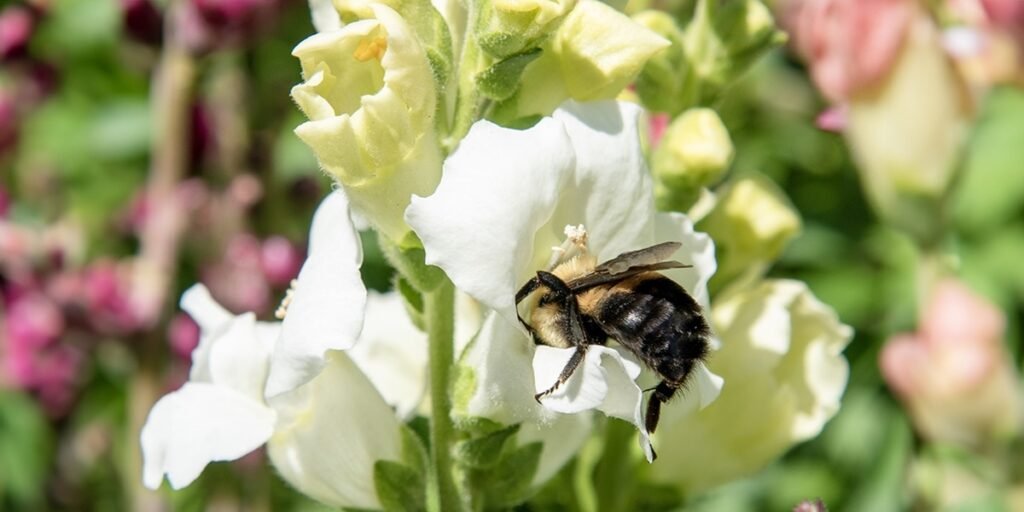
The Problem
The wellbeing of both bees and native honeybee populations is at serious risk, posing significant challenges to agriculture and ecosystems globally. As crucial pollinators, bees are vital for the production of many crops that people depend on for food. Yet, we’re seeing a decline in native honeybee numbers and managed colonies are facing alarming mortality rates due to various factors like parasitic mites, pesticide exposure, and loss of habitat. This situation threatens food security and biodiversity on a broad scale.
Our Work
Auburn University’s Bee Centre is tackling this pressing issue head-on. Our mission revolves around impactful research aimed at promoting the health of honeybees and native species. In collaboration with the USDA ARS Stoneville Pollinator Health Research Unit, we gather insights, share findings, and analyze data alongside graduate students. This teamwork has led to the development of new strategies for managing bee pests, selecting suitable planting methods for wildflowers, and examining the effects of invasive plants on bee nutrition.
Bee Centre has achieved notable progress in honeybee health research. For instance, we lead the US Beekeeping Survey, which monitors the health status of managed bee populations across the country. The survey reveals critical data, such as significant colony losses and a troubling percentage of recent declines reported by beekeepers, crucial for the pollination of specialty crops. This information is vital for informing policymakers and shaping agricultural practices.
Our research extends globally, especially as the parasitic mite, Tropilaelaps mercedesae, spreads through Asia and Eastern Europe. We’re working to understand and manage these mites, preparing beekeepers for their potential arrival and showcasing our commitment to both proactive and preventative strategies.
We are also actively addressing issues related to high colony loss caused by another mite, Varroa destructor. Through a substantial project funded by the USDA’s Specialized Crop Research Initiative, we’ve partnered with researchers across the U.S. and Canada to identify effective new methods for controlling this pest. Our field trials conducted in realistic beekeeping environments reflect our solution-oriented approach.
Beyond Research
Our influence spreads beyond just research; we’re deeply invested in education and outreach. The Bee Centre is dedicated to offering undergraduate students a rich, hands-on learning experience. By engaging them in our labs and those of our collaborators, we aim to provide real-world experiences that highlight their societal contributions. Students play essential roles in crafting experiments, communicating findings, and taking part in outreach efforts.
We also maintain connections with local beekeepers and farmers via field days, state meetings, and direct communication. Grasping their needs and addressing them underpins our mission. Initiatives like the monthly local webinar series, beekeeping demonstration videos, and in-person workshops with Alabama Extension are just some of the ways we provide education and support to our community.
The Future
Auburn’s Bee Centre represents more than just immediate efforts; it’s about paving the way for the future. Our upcoming initiative, Sebees, promises to give undergraduates immersive experiences in pollinator research and outreach. This aligns with Auburn’s strategic plan, which aims to enrich student experiences, enabling them to make significant contributions while preparing for real-world challenges.
Our vision is to leave a lasting impact on sustainable agriculture and bee conservation. Working closely with our network of collaborators and stakeholders, we strive to emerge as leaders in this field, addressing critical issues and inspiring future generations.
Auburn’s Bee Centre stands as a symbol of innovation, collaboration, and impact. We are committed to driving change, leading research, and making a meaningful difference in bee conservation and sustainable agriculture. Through our persistent dedication, we aim to establish Auburn as a frontrunner in this essential field, ensuring a healthier future for both bees and the ecosystems they support.
Post-Bee Change: Auburn University is taking the lead in saving bee populations, originally reported by Yellow Hammer News.







